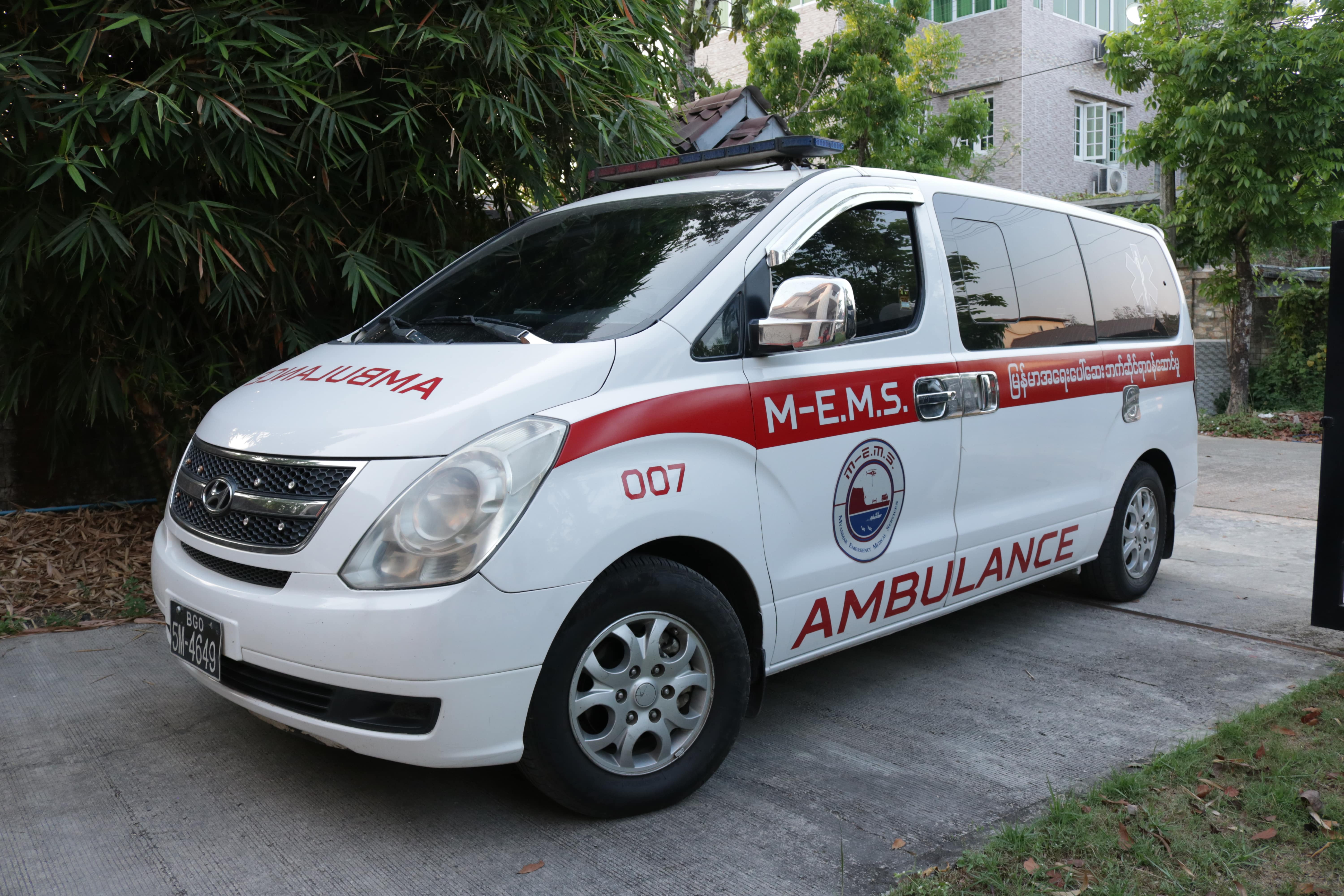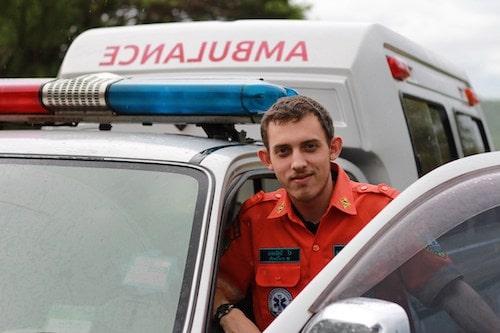
In a serious accident, unless you have called an ambulance, it is safe to assume one is probably not coming, says Anthony Quick.
Quick is an executive adviser to Myanmar Emergency Medical Services, which focuses on pre-hospital care and training.
He recommends people to either call for an ambulance themselves, direct somebody to do it, or if possible, make their own way to the hospital—“that is usually your quickest option in Myanmar,” he explains.
But sometimes an ambulance is a necessity, and with the government yet to introduce a nationwide ambulance service, having a plan for when things go wrong is important.
Here Quick shares vital information to help you deal with an emergency situation in Myanmar.
What is the general medical number to call?
The national emergency hotline is 192 for ambulance, however it is not yet in operation outside of the Yangon-Mandalay highway. It will hopefully be operable in Yangon by the end of this year, and eventually go national in a few years. In the meanwhile, you need to use volunteer ambulance groups (just save their phone number) in the case of an emergency. Also, I imagine basic English will be understood, but it remains to be seen how good this government system will actually be.
The government has ambulance services in Yangon, Naypyitaw, and Mandalay, as well as a few other cities, but these are not reliable. The drivers are not trained, typically even in basic first aid. This will hopefully be changing by the end of this year, depending on when a new programme gets approved. It is also not used for emergency response—mostly only for patient transport between hospitals.
What are the best volunteer groups to call?
There are estimated to be well over 10,000 different volunteer groups across the country, with over 10,000 volunteers in Yangon alone. This is what makes it challenging to give a phone number, as, well, it’s not just one number.
We currently have a network with over 1,000 different organizations nationwide. Our ambulance service is available whenever we are not already on another call, or out of the area, as we currently only have two vehicles ourselves. However, through our large network, we can quickly dispatch a volunteer ambulance unit where needed.
Our Burmese language number is 09796928977, and our English/Thai hotline is 09780640920. Our service is not free, but very reasonable, typically between 30,000-50,000 kyats for a ride with trained personnel. However, if a volunteer unit is called, then that is by donation basis, so it would be free of course, but it’s recommended to give them at least a small donation to help cover fuel.
There are some other private companies with ambulances, such as Parami Hospital, Asia Royal, International SOS, and Leo Medicare, but they are very expensive, and some require memberships. However, if they are close by, and it's a life-threatening emergency, please do call them directly. We cannot dispatch private ambulances from other companies, only from our own units, and our volunteer units.
What do people usually do just after an accident in Myanmar?
What is typically viewed as acceptable is to either wait for the police if you’re the victim, or hurry and pay up before the police arrive, and get out of there (the approach usually taken by those at fault). Taxis are still the number one form of transport to the hospital, although more and more people are showing up to the ER in ambulances. So if it’s not a very serious injury, and you can walk, take a taxi. If it is very serious, it would be best to wait for an ambulance, assuming the ambulance that shows up has trained emergency personnel on it.
What should you tell the operator?
Basic rules for calling an emergency in are to give your name, tell them what happened very shortly, yet clearly, number of patients if applicable, give location details, and give any other pertinent information. If you know the patient, please try to give patient history as much as possible (for example, what medications do they normally use, do they have a long standing medical condition).
What should you do at the scene of the accident?
Record anything pertinent, if possible with a photo, as that serves as evidence. Photos showing the offending vehicle, it's license number, and the damage it caused to your vehicle. You may also want to get their phone number and name, in the off-chance they are somebody who will take responsibility for damages on their own accord. Otherwise you can give it to the police.
When the police arrive, are they required to give you anything, such as an accident information statement?
The police will not give you anything.
Who is required to pay for the accident? For instance, if a foreigner is involved, does the responsibility automatically fall on the foreigner?
This one is hard to determine. If you are wrong, you pay, and being a foreigner, even more so. Huge amounts of money, sometimes 20-40 lakhs (US$1,328-2,656), depending on what happened. If it's not your fault, but you don't speak Burmese, it's still your fault. If it's not your fault, but it looks like it could be (e.g. no solid evidence it wasn't you), then it is probably still your fault, depending on the cop and your proficiency in Burmese, or calling a translator.
If it is clearly not your fault, then most likely the offender will need to pay, but they will try to pay less, and you may still need to pay for any damage your vehicle causes to government property, or if your vehicle needs to be towed.
In the case your vehicle must be towed, you will probably also have to pay a fine to the Yangon City Development Committee (YCDC) to get your vehicle back, as they usually impound vehicles that have had accidents. If you have insurance though, then you should not have to worry about these problems, as long as you call them and get them coming. I recommend to use GGI or iKBZ insurance.
And what’s the general numbers for police and fire services in Myanmar?
Each police station has it's own set of phone numbers, as does fire, but for the fire force the nationwide emergency hotline is 191 (this is active). For police, the hotline is 199. Neither hotline normally has English speakers, so if you cannot speak Burmese, you may need the help of a local, or your embassy.


